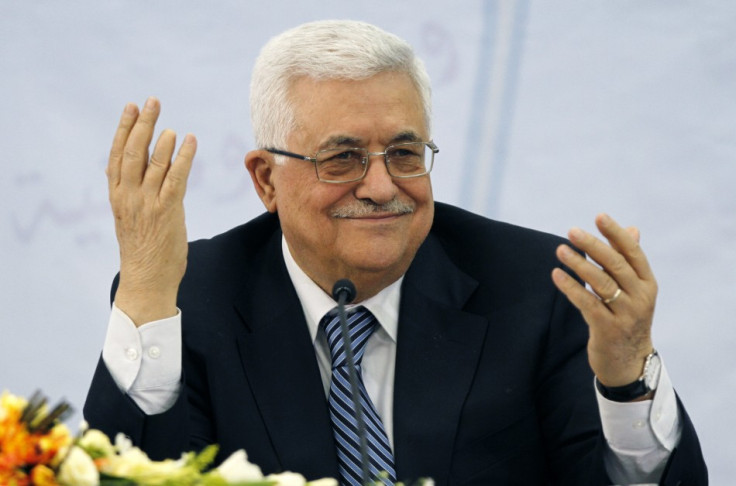Palestinians Defy U.S. and Israel With U.N. Statehood Bid Campaign

The Palestinian Authority has officially launched its bid to become a full member of the United Nations, using its campaign to denounce what it sees as the United States' double standards.
In a letter addressed to Ban Ki-moon's Ramallah office, Palestinian officials urged the U.N. Secretary-General to make use of its god offices and "exert all possible efforts toward the achievement of the Palestinian people's just demands."
The campaign is set to include a series of peaceful events leading up to the September 21 opening of the U.N. General Assembly with Palestinian President Mahmoud Abbas expected to address the assembly two days later, according to the officials.
However the U.S. has been hostile to the Palestinian campaign, with Republicans pressuring President Obama to thwart the move by threatening to veto the bid.
Since the announcement of the Palestinian plan, the Obama administration has been making diplomatic moves to try to prevent the Middle East peace talks, which broke down last year following a dispute over West Bank settlements.
Adding to the controversy, legal experts warned that a U.N. ratification of the Palestinians' move to achieve statehood could lead to an investigation of Israel and its settlement policy by the International Court, should Palestine refer the case to Chief Prosecutor Luis Moreno-Ocampo.
However, as the U.S. continues to try to dissuade the Palestinians from applying for full membership, tensions are continuing to escalate, with a senior Palestinian official saying the U.S. is showing "disdain" for Arabs by being so hostile to the bid.
Israel is also following in the U.S.'s footsteps, with Prime Minister Benjamin Netanyahu reiterating his call for Abbas to prioritise direct peace talks and insisted only negotiations would provide a solution to the conflict.
"What is important is to start, to continue, and to complete the talks," the Israeli leader said.
Netanyahu's insistence on talks is however surprising as the leader is known for his reluctance to negotiate and compromise. Palestinians and Israel have been at loggerheads over their borders and the extent of Israelis settlements, and despite two decades of strong diplomatic efforts by a variety of world leaders to revive the talks, they have until now proven ineffective.
The Palestinians are seeking an independent state in the West Bank, the Gaza Strip and East Jerusalem, which were territories that Israel occupied during the 1967 Middle East war, but insist Israeli settlements undermine their chances of establishing sovereignty over the territories. Israel, on the other hand argues the settlements are a necessity.
Defending their positions, Palestinians have said they want to apply for full membership to the U.N. to gain a fairer playing field with Israel.
"[The president] repeated his stance that the Palestinian and Arab position is to go to the United Nations, given that the Israeli side still refuses to acknowledge clear terms of reference and is building settlements," senior Abbas aide Nabil Abu Rdainah told Reuters after the meeting.
By becoming a member, Palestine will also be able to have recourse to international institutions such as the ICC or the U.N., forcing the international community to deal with the settlement problems according to international law. Taunting the U.S., Palestinian officials have also kick started their campaign by insisting that last year Obama seemed set on pushing for a full-fledge Palestinian state when addressing the U.N. General Assembly when he said "When we come back here next year, we can have an agreement that can lead to a new member of the United Nations, an independent, sovereign state of Palestine living in peace with Israel," which prompted Palestinian president Mahmoud Abbas to say this week "If he said it, he must have meant it."
© Copyright IBTimes 2024. All rights reserved.





